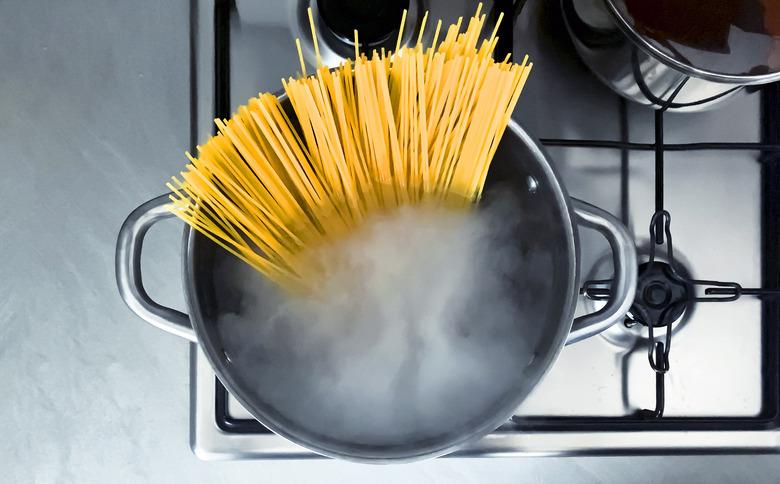This Pasta Hack From A Nobel Prize Winner Is Causing Controversy
How far would you go to save energy during a crisis? For some Italians, they draw the line at pasta.
Let us explain. Due to Russia's war in Ukraine, natural gas levels are down across Europe, and as of last summer, many feared the energy sector would essentially collapse during the winter.
That situation prompted some, including Italian Nobel laureate Giorgio Parisi, a theoretical physicist, to suggest methods of saving energy. Parisi's contribution is to cook your pasta in an atypical manner, and suffice to say, Italians were not happy about this proposition.
It all comes down to hot water. Boiling water is a very energy-intense process. The traditional way to cook pasta involves putting the pasta in boiling water, then letting it sit in that bubbling pot until it's cooked to perfection.
Back in September, however, Parisi shared a Facebook post originally by Alessandro Busiri Vici that suggested an energy-saving technique. After you bring the water to a boil, toss in your pasta and wait two minutes. Then you place a lid on the pot and turn off the stovetop, letting the heat of the already-hot water cook the pasta thoroughly. Vici suggested adding a minute or so of extra time for the pasta to cook fully.
Overall, the method could save up to eight minutes of energy that would otherwise be spent on keeping the water boiling. Parisi suggested that the pasta should cook more or less the same — a viewpoint that many Italians do not share.
Speaking to La Repubblica, Italian chef Antonello Colonna of the Michelin-starred restaurant Antonello Colonna Labico suggested that the texture of pasta becomes rubbery if you cook it in this manner.
While there's a difference between the science of cooking pasta and the art of cooking pasta, the idea of saving energy during the process isn't a bad one, especially when you consider the average Italian eats about 60 pounds of pasta per year, according to Pasta Pantry. Per The Times, the method of cooking shared by Vici and Parisi "could save as much as 47 percent of the energy they normally use."
Is there a compromise to be found? Perhaps. We'd love for both scientists and chefs to share the kitchen to find that happy middle ground — and share a great bowl of spaghetti after.
